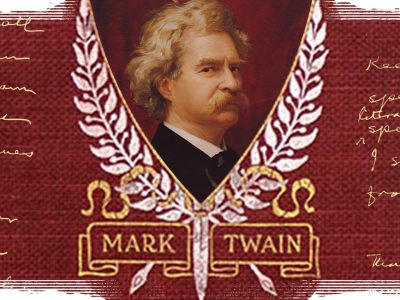The celebration of Presidents Day is a good occasion to reconsider a vital aspect of Abraham Lincoln’s life: his faith. Like George Washington’s, Lincoln’s faith has been closely scrutinized, hotly debated and often misunderstood. Both men attributed their success in war to divine providence, proclaimed days of public thanksgiving and prayer as president, and were intensely private about their personal beliefs. Lincoln was never baptized, never received communion, and never joined a church, but he had a thorough knowledge of the Bible, was deeply interested in spiritual matters, and peppered his speeches with biblical references and allusions.
In his later years, Lincoln had a profound sense of God’s presence, accepted many central scriptural tenets, and valiantly strove to follow Christian ethics. Lincoln discussed theologically significant questions in his addresses more than the avowedly Christian statesmen of the late-19th and early-20th centuries, most notably British Prime Minister William Gladstone, Dutch Prime Minister Abraham Kuyper and President Woodrow Wilson. He has been labeled a “biblical prophet,” the “theologian of American anguish,” and a “witness to God.” More has been written about Lincoln’s faith than about that of any other president, and he has undoubtedly been the subject of more sermons than any other chief executive.
Although Lincoln lacked family pedigree, formal education and social prominence, as president he successfully guided the nation through its most harrowing experience, saved the Union, freed the slaves, and analyzed political issues, historical events and God’s providence in profound addresses that will forever live in the national consciousness. Lincoln urged Americans to confess their sins, mend their ways, practice charity, and forsake revenge. Serving as president during a period in American history when Christian values, language and ethos had arguably their greatest impact, Lincoln successfully appealed to a biblical frame of reference, moral commitments and a sense of divine mission that many Americans shared. Struck down by an assassin’s gunshot, he has been revered as a martyr who died so that his people might live in freedom and harmony. Many scholars rank Lincoln as the nation’s best president, and no person occupies a higher place in the American pantheon than the prairie politician.
After his death, Lincoln became the second great hero of the nation’s civil faith. Popular prints portrayed Washington receiving Lincoln into heaven with open arms. While Washington was the saintly father figure and the American Moses, Lincoln was the Christ figure and the first great martyr. Following his assassination, grieving Victorians elevated the often harshly criticized president to sainthood. They portrayed Lincoln as bearing the moral burdens of a blundering and sinful people, suffering vicariously for them, proclaiming cherished Christian virtues and values, and sacrificing his life for the causes he loved: the Union and freedom.
What William Barton wrote in his 1920 book, “The Soul of Abraham Lincoln,” is still true today: No other aspect of Lincoln’s life “has evoked more interest than that of his religious faith and experience,” and the perspectives investigators have offered are “hopelessly contradictory.” Lincoln’s mythic stature has made his religious views prone to apocryphal stories, prejudiced pleading, pious oversimplification and partisan exploitation. Some friends and associates claimed he remained all his life an unbeliever who attended church and employed religious language simply to win voters, gain support for policies, and convince Americans to trust him. Others, who knew the 16th president equally well, contended that he became an orthodox Christian who read the Bible regularly, prayed fervently, and frequently used scriptural passages and illustrations to express his personal convictions.
Unraveling what Lincoln truly believed is challenging for two reasons. First, Lincoln’s religious views, like those of Washington and many other presidents, were complex and intensely personal. To him, religion was a private matter between an individual and God. Unlike many other statesmen, he did not keep a diary or pen an autobiography, and he rarely shared his deepest beliefs in private letters. Second, as with Washington, much mythology confounds the historical record. To promote themselves, numerous ministers falsely claimed to have met with Lincoln, and others who actually did put improbable words into his mouth. To discern his beliefs, historical facts must be separated from pious tales and unlikely legends. Thanks to the painstaking work of scholars, this task has become easier, but many perplexing questions remain about Lincoln’s religious convictions. Assessments of his faith depend largely on which sources we accept as true. I attempt to explain what Lincoln did believe in my book, “Faith and the Presidency: From George Washington to George W. Bush.”
Americans will continue to debate Lincoln’s religious and political convictions because of their interest in his life as well as his immense value in the nation’s culture wars. Because he played the pivotal role in a central event in American history, many seek to gain an advantage by enlisting him on their side of contemporary political, moral, economic or religious arguments. In some circles, the question “What would Lincoln do?” is more important than the query “What would Jesus do?” While Americans debate the precise nature of Lincoln’s faith, we can all appreciate his immense contribution to our nation.




